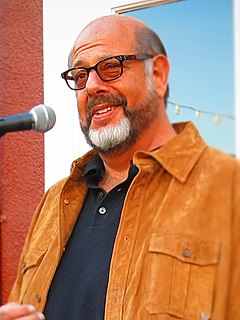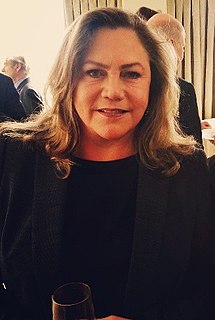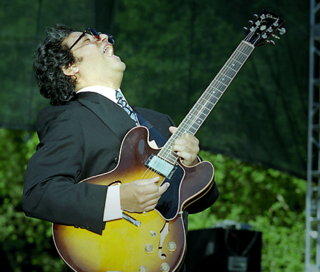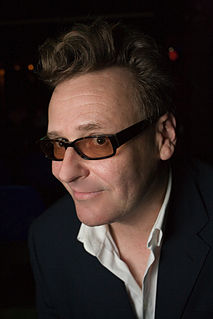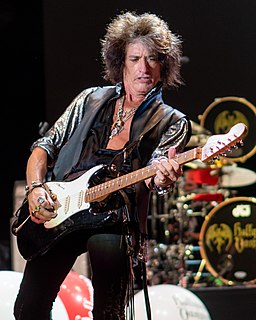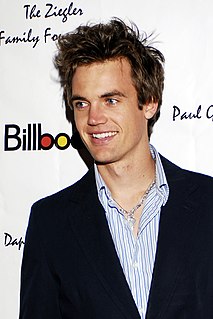A Quote by Paul Giamatti
I was more used to acting onstage, for a long time. I don't know, maybe I was temperamentally more suited to stage stuff. And there are things about the stage that I miss in a lot of ways.
Related Quotes
Early on I was a lot more unsure of myself on stage. When our band The Decemberists was getting bigger audiences I was more concerned about alienating them, so I wasn't as willing to take risks and do weird stuff on stage. But once you get more accustomed to it you tend to have more fun with it and not worry about being pilloried for acting out. Whenever you play in front of 400 or 500 more people than you're used to it's always a weird, transitional period.
Normally classical music is set up so you have professionals on a stage and a bunch of audience - it's us versus them. You spend your entire time as an audience member looking at the back of the conductor so you're already aware of a certain kind of hierarchy when you are there: there are people who can do it, who are on stage, and you aren't on stage so you can't do it. There's also a conductor who is telling the people who are onstage exactly what to do and when to do it and so you know that person is more important than the people on stage.
One of the things I do tell young women, if they want to pursue a career in acting, is to get good stage training. It is essential to have a good basis in stage technique. You can move into film easily, and acquire more skill and more understanding, but you can't necessarily go the other way around. For women, longevity of career will very much be on stage.
I think the more people you add on stage, the more locked it things become. Whereas fewer members on stage gets the audience to notice any small idiosyncrasy or unique moment that one of the three people onstage is having. It also means that mistakes are accentuated, but to good affect generally if you are that type of band.
I stopped acting when I was about nineteen, twenty, when I got thrown out of college. I did act for about ten years. I don't know. I suspect I'm still a reasonably good actor, but I don't really know that I want to get on the stage again ... and having to say all those boring words by me over and over again ... I don't know if I want to do that. Also, I like a certain amount of freedom of movement, and if you're acting, you're stuck in one place for a long time. Having said that, I will probably be onstage next fall.
I don't come on to seduce the audience. I don't care if everyone laughs. I can't think about that anymore. If there's anything that a lot of experience on stage and a lot of stage time gives you is the confidence to know that it's ok if they're not laughing every second you're up there. Although that's what drives me and I still go too fast a lot of the time.
Steven and I stood on the stage at the Boston Garden after the Stones had just played there and the stage was still up. We had been playing cards, maybe a high-school dance, to 400 or 500, maybe a thousand. We just stood on the stage and thought, 'Well,man,maybe someday.' In 4 years that was OUR stage.
Aging is not 'lost youth,' but a new stage of opportunity and strength. It's a different stage of life, and if you are going to pretend it's youth, you are going to miss it. You are going to miss the surprises, the possibilities, and the evolution that we are just beginning to know about because there are no role models, no guideposts, and no signs.
maybe memories are like karaoke-where you realize up on the stage, with all those lyrics scrawling across the screen's bottom, and with everybody clapping at you, that you didn't know even half the lyrics to your all-time favourite song. Only afterwards, when someone else is up on stage humiliating themselves amid the clapping and laughing, do you realize that what you liiked most about your favourite song was precisely your ignorance of its full meaning- and you read more into it than maybe existed in the first place. I think it's better to not know the lyrics to your life.


